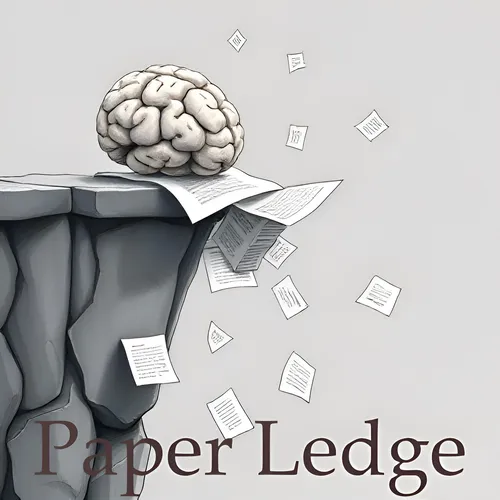Computation and Language - OmniEAR Benchmarking Agent Reasoning in Embodied Tasks
- Author
- ernestasposkus
- Published
- Fri 08 Aug 2025
- Episode Link
- https://www.paperledge.com/e/computation-and-language-omniear-benchmarking-agent-reasoning-in-embodied-tasks/
Hey PaperLedge crew, Ernis here! Get ready to dive into some seriously cool AI research that's got me buzzing. Today, we're cracking open a paper all about how well Large Language Models – you know, those AI brains behind chatbots and text generators – can handle the real world.
Now, we all know these models are amazing at abstract stuff, like writing poetry or summarizing books. But what happens when you ask them to, say, assemble furniture or coordinate a team to clean up a spill? That's where things get tricky.
This paper introduces something called OmniEAR, which is basically a super-tough obstacle course for AI. Think of it like this: instead of just giving the AI a set of instructions and tools, OmniEAR throws it into a simulated world, gives it a goal, and says, "Figure it out!"
- Imagine a robot in a virtual kitchen. It needs to bake a cake, but it doesn't automatically know where the ingredients are, how the oven works, or that it needs a mixing bowl.
- Or picture a team of virtual robots in a factory, trying to assemble a widget. They have to figure out who does what, which tools to use, and how to avoid bumping into each other – all based on the task at hand.
The key here is that OmniEAR tests the AI's ability to dynamically acquire capabilities and autonomously determine coordination strategies. It's not just about following pre-programmed steps; it's about understanding the situation and making smart decisions on the fly.
The researchers created 1,500 of these scenarios, covering everything from household chores to industrial tasks. They then fed these scenarios to Large Language Models, and... well, the results were eye-opening.
When the AIs were given explicit instructions, they did pretty well, succeeding 85-96% of the time. But when they had to figure things out on their own – like choosing the right tool or coordinating with other agents – their performance plummeted. In some cases, failure rates were over 50%!
"Surprisingly, complete environmental information degrades coordination performance, indicating models cannot filter task-relevant constraints."
This is a HUGE deal. It means that sometimes, giving the AI too much information actually makes it worse! It gets overwhelmed and can't figure out what's important.
The researchers even tried fine-tuning the models – basically, giving them extra training on these specific tasks. While this helped with single-agent tasks, it barely made a dent in multi-agent performance. This suggests there are fundamental limitations in the way these models are designed.
So, why does this matter? Well, think about the future of AI. We want robots that can help us around the house, assist in factories, and even respond to emergencies. But if these AI brains can't handle the complexities of the real world, they're not going to be very useful.
- For developers: OmniEAR provides a rigorous benchmark for evaluating and improving embodied AI systems.
- For policymakers: This research highlights the limitations of current AI technology and the need for careful consideration of its deployment in real-world settings.
- For everyone: It's a reminder that AI is still a work in progress, and there's a lot more research to be done before we can truly trust it to handle complex, real-world tasks.
This research underscores that current language models, while impressive in many ways, struggle with the kind of common-sense reasoning and problem-solving that humans do effortlessly every day.
Here are a couple of things that really got me thinking:
- If giving AI more information can actually hurt its performance, how do we design systems that can effectively filter and prioritize information?
- What kind of new AI architectures are needed to overcome these limitations and enable truly embodied reasoning?
This paper is a wake-up call, showing us that embodied reasoning is a completely different beast than what current models are designed for. It's a reminder that the path to truly intelligent and helpful AI is still long and winding. I'm excited to see what future research will bring in this area. Until next time, keep learning, PaperLedge crew!
Credit to Paper authors: Zixuan Wang, Dingming Li, Hongxing Li, Shuo Chen, Yuchen Yan, Wenqi Zhang, Yongliang Shen, Weiming Lu, Jun Xiao, Yueting Zhuang
